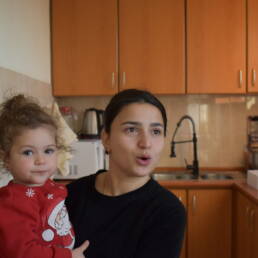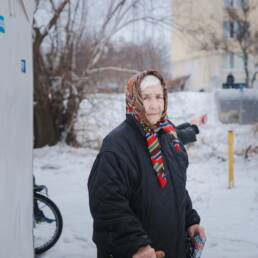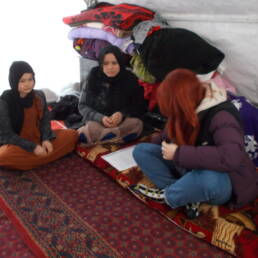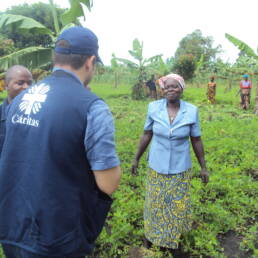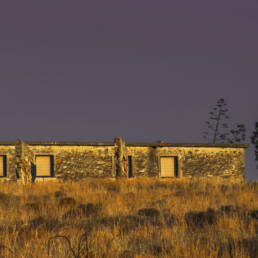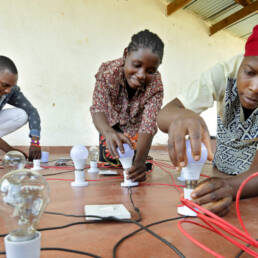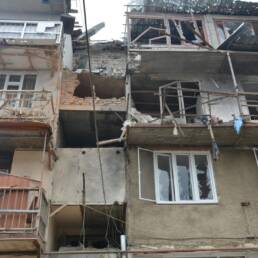Author
Armenuhi Mkhoyan
PR and Communication Officer
Caritas Armenia
Armen Hakobyan moved to Armenia with his family after the war in Nagorno-Karabakh (Artsakh) in 2020. He now works for Armenian Caritas as an agronomist and helps forcibly displaced families who fled after the military intervention in September 2023.
Armen and his family used to live in the village of Vurgavan in Kashatagh (a southwastern region of Nagorno-Karabakh) before the war. In the village, there were 45 families. The day before the Azerbaijani army occupied the village, the residents were allowed to leave. “The villagers somehow managed to get out,” says Armen, noting that his family has since moved to the city of Goris, in the southeastern region of Syunik.
They left a lot behind: a large two-story house, a two-hectare vineyard and a two-hectare pineapple garden, which are now only memories to look at through the pictures they kept. In his homeland, Armen was a teacher, and so was his father and his wife. He was awarded by the local authorities for his distinguished work as a school headteacher between 2007 and 2020.
Soon after moving to Goris, Armen decided to do what he loves. With the financial support provided by the Armenian state, he bought two hectares of land in the Karashen community and started an apple and walnut orchard.
It’s been three years already and we are waiting for a harvest next year. We have established a garden as we are trying to settle ourselves in. We have to live with hope and keep Artsakh in our minds and hearts. But now, we are in Armenia, and we are happy to contribute to its blossoming.
Moving to Armenia was quite difficult for Armen, but things changed when he started receiving support from Armenian Caritas. Then, he learned about a vacancy for an agriculturist position in the organisation. The position was available within the “Support to the displaced population from Artsakh” programme. Armen applied and has been working for Caritas since.
Recently, Armen received an offer to become the director of the local school. However, seeing the work done by Caritas, he decided to refuse that position to stay and work at Caritas.
When I needed support, Caritas was next to me. So, I felt considered and hopeful. Now, it’s my time to help the newly displaced people through the Caritas programmes. This is much closer to my heart than going back to my previous career.
For the sake of helping others, one can refuse job positions. The biggest gain for Armen and his teammates now is people’s gratitude, thankfulness and hopeful eyes.




